READY TO GET STARTED?
REQUEST A FREE ESTIMATE
Fill out the form below or call (888) 466-7849 for a free, no-obligation estimate.
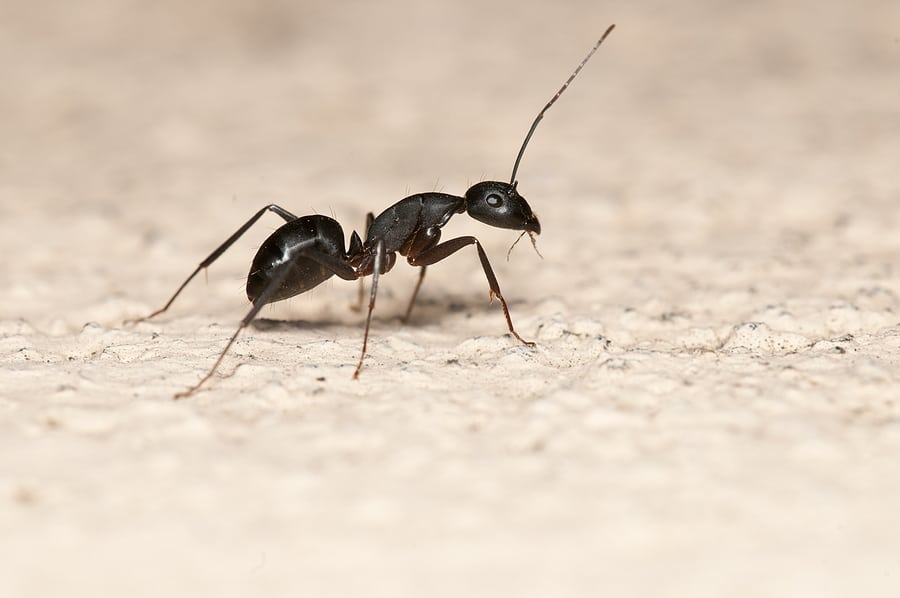
Ant season peaks in the spring and summertime, with these pests oftentimes finding their way inside your home. But did you know that carpenter ants remain active throughout the year? In return, they can cause damage to your home and infest.
Carpenter ants will nest in damaged wood, usually softwood damaged from water. Carpenter ant damage includes excavating wood to expand their nests, often making holes throughout exposed wood. If these ants are found inside, it is also an indication that there is a water issue, such as a leak.
While these ants are most active in the spring and summer, they are also known to infest homes during the winter months, as well. They will forage for food and water, looking for proteins, fats, and sugars. Once inside, these ants will look for a moist environment to help them survive. They can often be found in bathrooms, kitchens, pipes, and roof vents.
While carpenter ants do not die off in the winter months, they will instead become dormant when the temperatures drop. This usually depends on where they have built their nests and how much the temperature has dropped. If they have already found themselves inside, they will remain active or revive from their dormant state once the heat from the house has risen.
To prevent ants from entering your home this fall and winter, consider placing these preventative measures throughout your house,
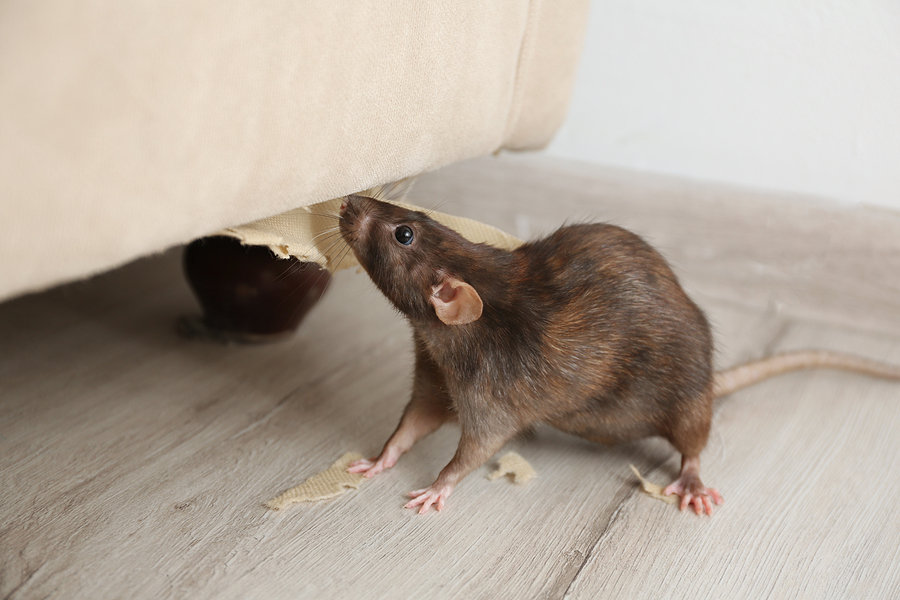
The last thing any homeowner wants to deal with is pests. A household pest is any insect or animal that is commonly found in a household structure that can cause destruction to the property or to your health. While the occasional critter can make its way inside, routine occurrences indicates the likelihood of an infestation. Fortunately there are some DIY pest control tips you can use at home to help prevent these pests from taking over. Here are a few of the most common household pests and how to prevent them.
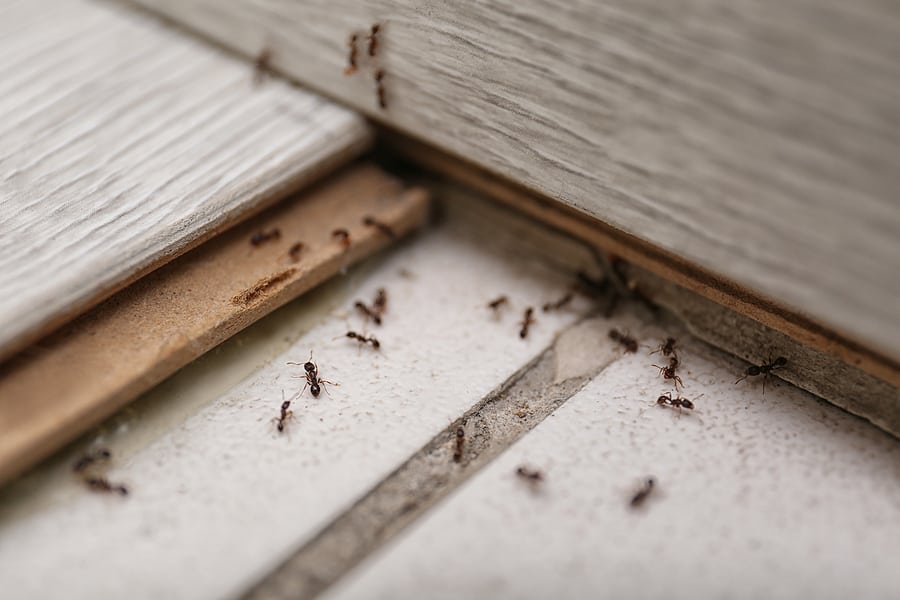
Most ants don’t cause any structural damage to your home (with the exception of carpenter ants). They are, however, the #1 nuisance pest in the United States. Ants are difficult to control because their colonies are so large. These pests typically come indoors in search of food and water and can usually be found near these sources in your home – especially in kitchens and bathrooms. Prevent ants by:

Birds are not usually considered nuisance pests but their nests can obstruct common areas of your home and their droppings can contaminate or damage other areas. Birds usually enter your home in search of food and shelter. Prevent birds by:

Cockroaches are dangerous to humans as they are known to carry serious diseases and trigger both allergies and asthma. These pests multiply quickly, making them very difficult to control. Roaches will come into homes in search of food, water, and shelter, with them often found in kitchens, bathrooms, and laundry rooms. Prevent roaches by:
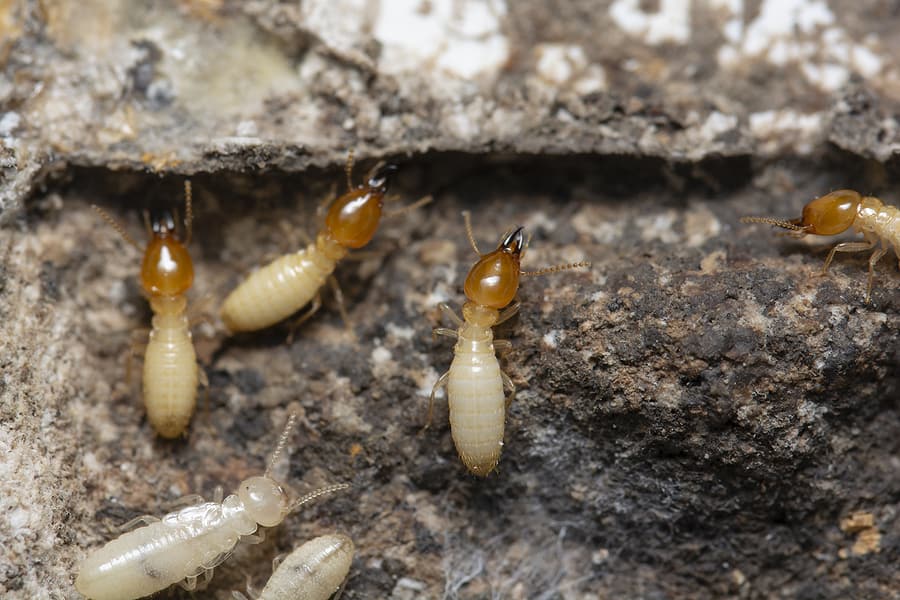
Termites are known as silent destroyers, eating wood from the inside out and going undetected for long periods of time. Common signs of termites include swarms; mud tubes; discarded wings; discolored drywall; peeling paint; wood with a hollow sound when tapped; squeaky floorboards; doors and windows that stick; damaged wood; loose tiles; and buckling floors. Prevent termites by:
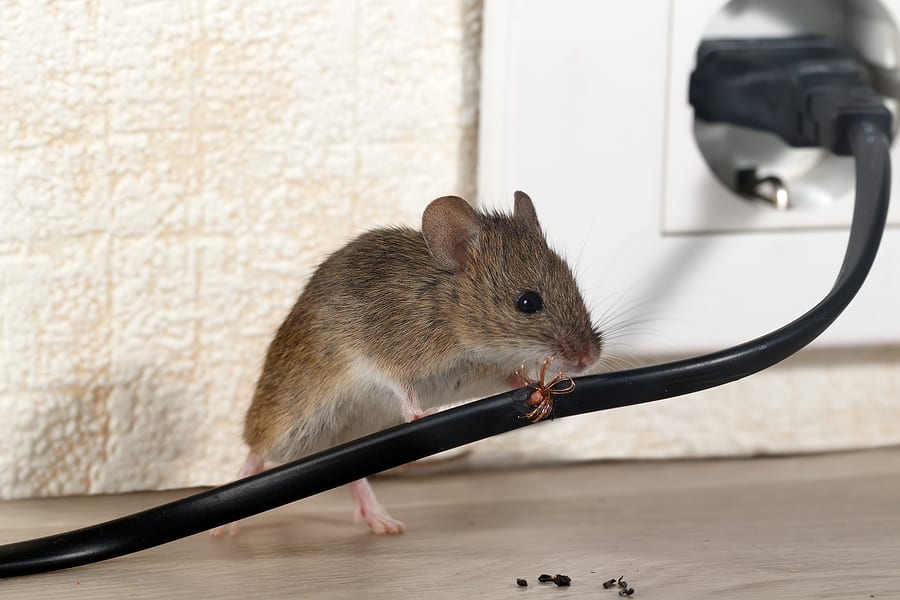
Rodents are common household pests and include rats, mice, squirrels, and raccoons. Rodents can cause significant damage to your property by chewing through electrical wires and insulation. They can also contaminate food and spread disease. Prevent rodents by:
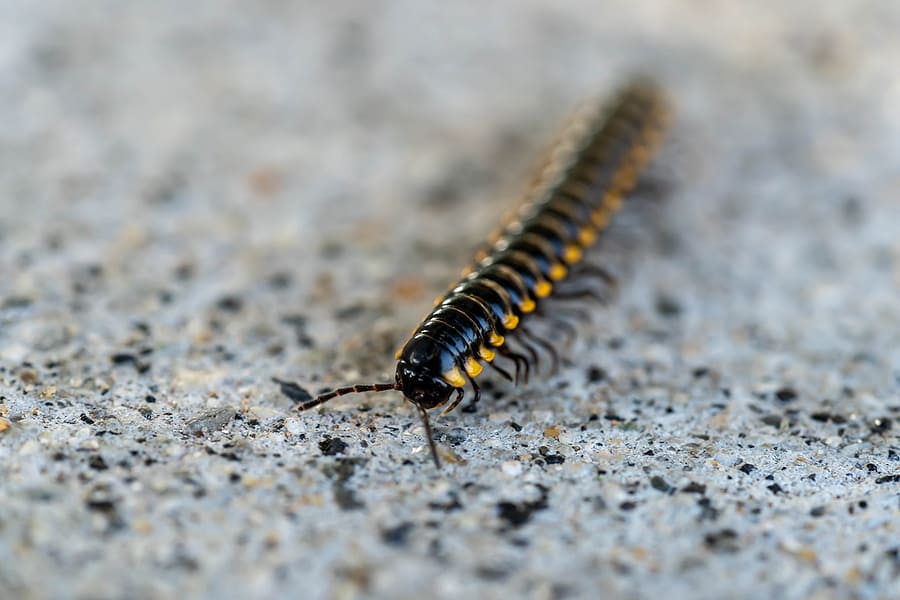
Centipedes are arthropods with 14 or more body segments and one pair of legs per segment. Millipedes are also arthropods but they have 2 pairs of legs on their body segments. Neither of these pests are considered dangerous and don’t cause damage or spread disease. They can, however, be annoying if they infest in large numbers. Both of these pests thrive in moisture-rich environments. Prevent centipedes and millipedes by:
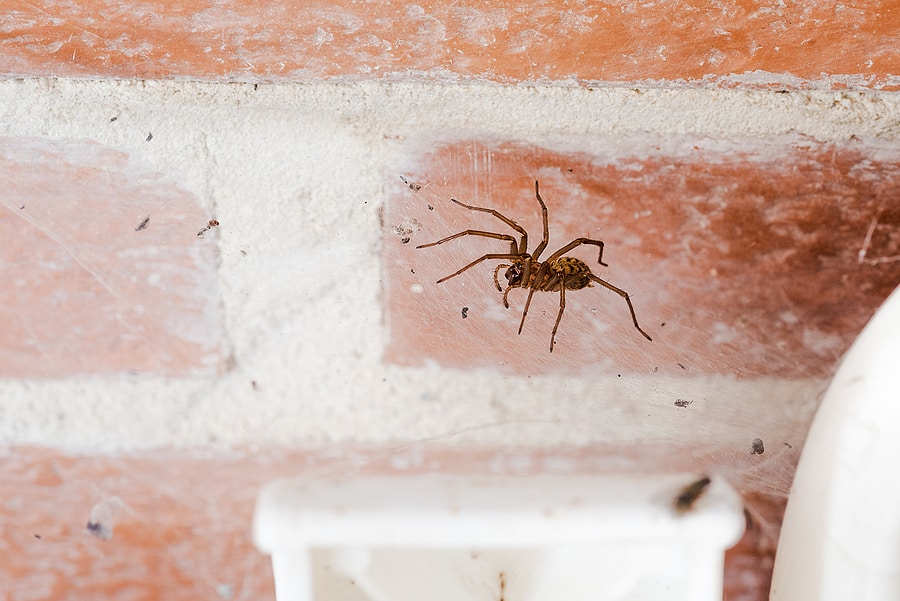
Although there are a few venomous spider species in our area, most spiders that make their way into your home are harmless (and even beneficial by eating other pests)! Prevent spiders by:
The key to household pest control is prevention. By taking these steps early, you can head off an infestation before it starts. If you have a problem with any household pests, contact your local pest control company for a free evaluation and comprehensive treatment plan.
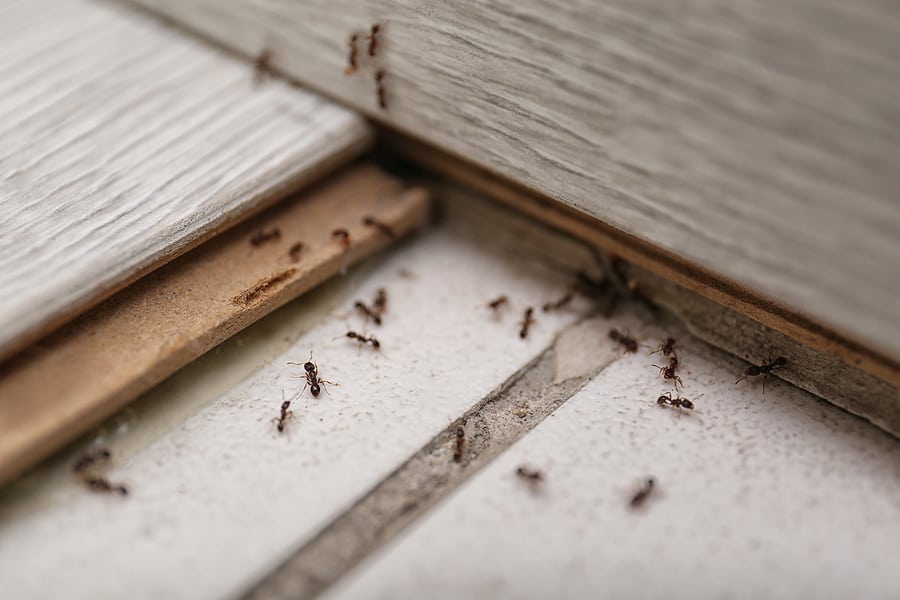
Little black ants are a common household pest usually seen in larger swarms during the warmer months of the year. These ants can be a huge nuisance, commonly infesting areas such as the bathroom and kitchen, searching for food and a place to nest. Once ants become a problem, it can be difficult to control them; but with some easy preventative measures, you’re less likely to encounter these pests!
Ants are always in search of food. Eliminating any food source that they have easy access to will be a major part of preventing them. After every meal, wipe down countertops and tables of any food crumbs or spills left behind. Don’t forget about your appliances either; ensure that your stove, microwave, and sink are also cleaned frequently. To prevent these pests from infesting your pantry, use sealed containers for any dry goods. Consider placing a bay leaf in canisters of dry food like flour to repel ants.
To survive, ants need water. Eliminating moisture throughout your home is key to ant prevention. Take some time to look around the interior and exterior of your home. If you notice any leaks, make sure you repair them immediately. Check your gutters often to make sure there are no clogs. Consider installing gutter guards to help prevent clogs. Additionally, make sure that the downspout is directing away from your foundation.
Being as little as they are, ants only need a small gap or hole to make their way inside. It’s essential to identify entry points and seal them properly to avoid infestation. Look around the interior and exterior of the home to look for these gaps. Popular places include areas where pipes and wires enter your home. Check your windows and door screens for any open holes and replace weatherstripping frequently.
Preventing ants can be difficult and feel impossible. If you’ve noticed an increase in ant activity around your home, consider contacting your local pest control provider. These professionals will complete a thorough and comprehensive treatment and control plan.

Summer can bring out a mass of pests looking for food, water, and shelter. If certain preventative measures are not put in place around your home, they can easily infest inside, making them difficult to get rid of. Here we break down the top three most popular summer pests to look out for and how you can prevent them.
Ants
Ants are small, sneaky, and looking for your leftover food crumbs! These pests can access your home through only a small gap or hole leading inside. Inspect and seal all cracks and crevices throughout the inside and outside of your home. Likewise, eliminating potential food sources they find attractive is a great way to prevent ants. Make sure that you are keeping a clean home by sweeping, mopping, taking the trash out regularly, and immediately cleaning up any spills.
Mosquitoes
Mosquitoes are most active during warmer, humid weather. It’s certain you will come across these pests in the summertime but preventing them from infesting is easier than you think. Mosquitoes will lay their eggs in any standing water. Avoid standing water throughout your property by getting rid of objects that can hold water such as toys, pet bowls, tarps, birdbaths, etc. If clogged, gutters will also hold water, so make sure they are clear of debris to avoid providing them a place to breed and lay their eggs.
Roaches
Roaches eat just about anything, making them difficult to get rid of once they’ve infested your home. These pests can be a health threat as they are known to spread bacteria and cause severe allergic reactions. Eliminating any food source available to them is key to discouraging these pests. After each meal, wipe down any grease from the stovetop and appliances, clean up any leftover crumbs and spills from the countertops, and seal leftover food in airtight containers. Always take the trash out regularly and use garbage cans with tight-fitting lids. Before bringing in any newspapers or packages, inspect them throughout to ensure these pests are not sneaking in.
Dealing with summer pests can be a hassle and take away from all the summer fun! If you are having a summer pest problem, consider calling your local pest control provider. These professionals can provide you with a thorough inspection, identify the type of pest you are dealing with, and provide a treatment and prevention plan fit for your property.

It’s officially barbeque season! Many of us are looking forward to getting together with family and friends during this warm weather for a backyard cookout. Unfortunately, we’re not the only ones who love our outside parties; summer pests are also likely to show up and ruin the fun! While it’s impossible to get rid of all pests outside, it is possible to reduce the chance of them crashing your party by taking a few precautions before your next backyard BBQ!
Prepare Before the Party
Before your party day arrives, put preventative measures in place to avoid pests. Check your doors and windows for any gaps or holes and secure them if needed. Check your yard for items that can hold water such as buckets or toys, which can act as a breeding ground for mosquitoes and empty or remove them.
Choose the Party Time Wisely
Many pests, like mosquitoes, are most active at dusk and dawn. If your party will take place before sunset, plan to have plenty of insect repellent on hand, especially those that contain DEET. Consider putting citronella candles outside near the party area where they can help minimize the presence of mosquitoes.
Secure the Food
Be prepared for pests to swarm the food and drinks you serve. Some pests, like ants, are looking for any food source such as fruit or sweets. Consider serving your food and drinks indoors and use your outdoor space for eating and entertaining. Try to keep your food in sealed containers when possible and, throughout the party, try to wipe and sweep up any food crumbs or spills to keep pests from infesting.
After the Party
As important as it is to prepare for a party, it’s equally important to clean up afterwards to keep pests from taking over your property afterward. Make sure you clean up any trash that’s been left behind, along with sweeping up crumbs and wiping spills. Wash dishes right after the party instead of letting them lay in the sink overnight. Make sure that you’ve placed your trash in sealed, tightly closed garbage containers outside of your house.
Preparing for a party can be stressful enough, but when pests become a problem they can definitely add to your stress. To ensure a pest-free party, consider calling your local pest control company who can provide you with an inspection and a treatment plan.